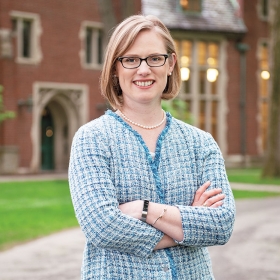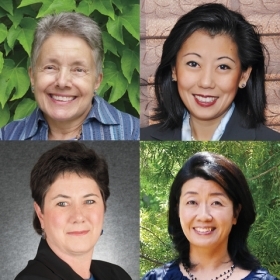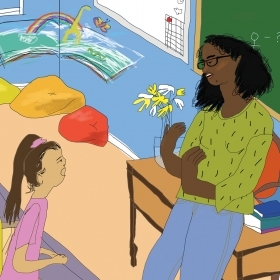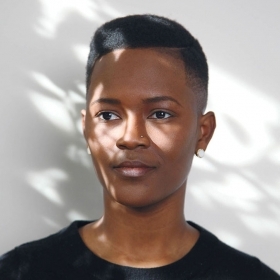I have been reminded by more than one alum that anti-racism is a lifelong journey, and I am humbled anew each time.

Photo by Webb Chappell
I have privilege. And like most people with privilege, I often don’t recognize the benefits that put me ahead of my colleagues of color. I’ve lived most of my life espousing a commitment to social justice, and only recently recognized the privilege of being able to choose when and how I engage. While I’ve been committing myself to more reading, listening, and conversations about race and anti-racism, I also realize this is new territory for me, because of privilege.
It isn’t new territory to alums of color who live with the impact of systemic and interpersonal racism every day, in every moment. An alum recently reminded me that anti-racism work is not something binary—not something we get “right” or “wrong.” There’s no “I’m not racist” sticker or diploma, even if we think we have done the work or have some life experience credentials to earn one. Admittedly, I’m frustrated when I feel as though I’ve put deliberate effort into making change, and then realize that it’s nowhere close to enough. I have been reminded by more than one alum that anti-racism is a lifelong journey, and I am humbled anew each time.
I’ve thought a lot about how I can make change in my own spheres of influence—my family, my community, and my work (that’s with you, Wellesley alumnae!). Our Alumnae Association staff committed to reading two books this summer and fall: How to Be Less Stupid About Race by Crystal Fleming ’04 and So You Want To Talk About Race by Ijeoma Oluo. I grappled with a lot of hard truths as I worked through these texts and others this summer. One of the most resonant messages was from Oluo: “You’re going to screw this up. You’re going to screw this up royally. More than once. I’m sorry, I wish I could say that reading this book would guarantee that you’d never leave a conversation about race feeling like you’ve gotten it all wrong and made everything worse. But I can’t. It’s going to happen. It’s going to happen, and you should have these conversations anyway.”
Shoot. I aspire to not screw things up. And while I give myself grace to screw things up in my personal life with some regularity, I really aspire to not screw things up professionally, among Wellesley alums and colleagues I admire and respect.
This year the WCAA will undertake a diversity audit in order to examine the demographics of our staff, board, and volunteers as a baseline from which we can improve. Your participation in our all-alumnae survey in the spring will help us collect important data to support this. We will partner with the Wellesley Racial Justice Initiative, an independent organization of Wellesley alums who have organized for racial justice work. We will set expectations and offer resources to our volunteer leadership to create more inclusive alumnae experiences. We will offer opportunities for all alumnae to grow in our own journeys of understanding bias, privilege, and systemic racism. Undoubtedly, we will screw it up. But we should have these conversations anyway. I ask for your engagement, and your grace, as we move forward together.
[substory:1]


